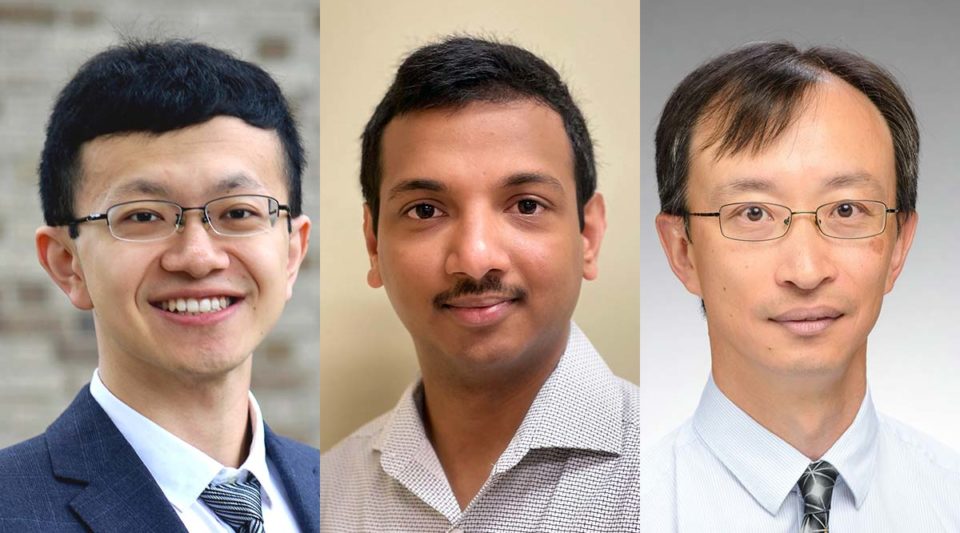The Department of Chemical and Biomolecular Engineering is pleased to announce three appointments to the faculty.
Hanyu Ma has been appointed as assistant research professor. His research integrates first-principles simulations, kinetic modeling, and data science to design heterogeneous catalytic materials and processes. His work emphasizes emerging opportunities at the intersection of energy and the environment enabled by integrating catalysts with low-temperature plasmas.
Ma received his Ph.D. in environmental engineering and his M.S. in chemical engineering, both from Notre Dame. He previously worked as a postdoctoral researcher in the Schneider Research Group.
Vignesh Sundaresan has been appointed as assistant research professor. His work focuses on coupled electrochemical and optical techniques that can observe the behavior of individual nanoparticles, molecules, enzymes, and bacteria, and on using these insights to develop ultra-sensitive chemical and bio-sensors.
Sundaresan received his Ph.D. in chemistry from Temple University. He previously worked as a postdoctoral researcher in the Bohn Research Group.
Yong Zhang has been appointed as assistant research professor. His research focuses on the development and application of molecular simulation methods. He is working on projects closely related to materials challenges in new and emerging energy storage devices, including flow batteries and beyond lithium-ion batteries.
Zhang received his Ph.D. in chemistry from Boston University. He previously worked as a postdoctoral researcher and staff scientist in the Maginn Group.
“Hanyu, Vignesh, and Yong have all demonstrated exceptional research capabilities and potential in their current roles in the department,” said Bill Schneider, Dorini Family Chair in Energy Studies and chair of the department.
“Their new faculty positions provide them the opportunity to develop as independent researchers while drawing on the substantial resources and expertise in their current groups.”
— College of Engineering
